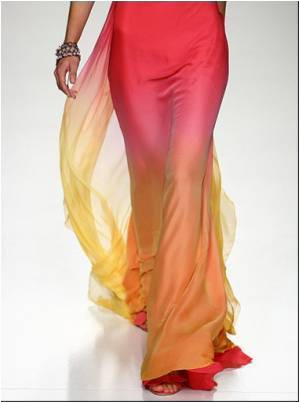
"The desire for women at peak fertility to unconsciously choose products that enhance appearance is driven by a desire to outdo attractive rival women. If you look more desirable than your competition, you are more likely to stand out," said Kristina Durante, a post-doctoral fellow at the Carlson School.
This research provides some of the first evidence of how, why, and when consumer behavior is influenced by hormonal factors.
Durante and co-authors focused their predictions on the fact that competition for a suitable partner would be influenced by a woman's fertility status.
"We found that, when ovulating, women chose sexier fashion products when thinking about other attractive, local but not distant women," said Durante.
Although the end result is to attract the best romantic partner available, Durante's research found that ovulating women's choice of dress is motivated by the other women in their environment.
"In order to entice a desirable mate, a woman needs to assess the attractiveness of other women in her local environment to determine how eye-catching she needs to be to snare a good man," Durante said.
In the study, researchers had ovulating women view a series of photographs of attractive local women and then asked them to choose clothing and accessory items to purchase.
The majority of participants chose sexier products than those who had been shown photographs of unattractive local women or women who lived over 1000 miles away. This change in consumer choice is not a conscious decision and non-ovulating women are not subject to the effect.
The current findings have practical implications for marketers because ovulatory cycle effects may profoundly influence women's consumer behavior.
The study appears in the Journal of Consumer Research.
Source-ANI








